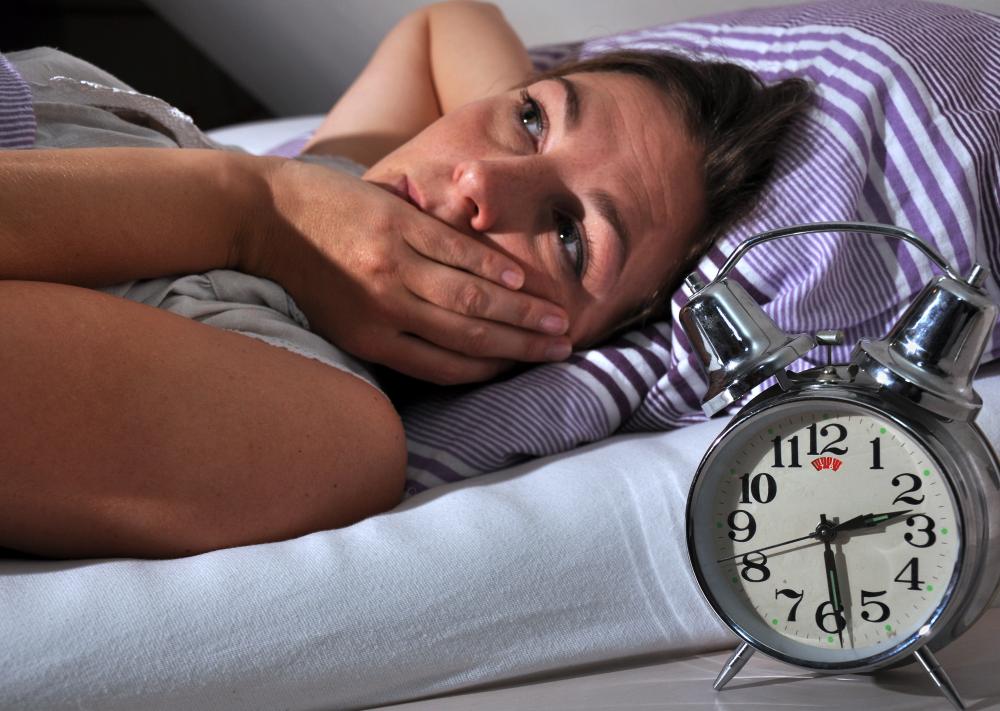At WiseGEEK, we're committed to delivering accurate, trustworthy information. Our expert-authored content is rigorously fact-checked and sourced from credible authorities. Discover how we uphold the highest standards in providing you with reliable knowledge.
What is Effexor XR®?
Effexor XR® is the extended release formula of Effexor®. Wyeth Pharmaceuticals, Inc. manufactures both drugs and both types are now available in generic form as well. Generic types may be sold as venlafexine, and the XR following the name would suggest the extended release type.
In an extended release formula such as that available in Effexor XR® the body metabolizes the medication differently. Small and consistent amounts of the medication are slowly released into the blood stream from the gastrointestinal tract. This can mean the body gets approximately the same level of medication at all times, which may be particularly helpful in treating the conditions for which venlafexine is prescribed.

Typically Effexor XR® is used in the treatment of depression and anxiety disorder. It is also commonly prescribed to treat migraines, diabetic neuropathy and sometimes to treat hot flashes. It may be preferred by some patients because it often causes weight loss, though it’s usually not prescribed for this purpose. However, many of the medication used to treat depression may result in weight gain, and Effexor® could be an attractive alternative.

Medications like Effexor XR® are called SNRIs or serotonin-norepinephrine reuptake inhibitors. They act to prevent the “reuptake” of serotonin and norepinephrine. When these are available more freely, they can have a significant impact on regulating mood. In particular, venlafexine in any formula also may slightly affect dopamine levels too. Thus the medication acts on three of the most important “mood” neurotransmitters in the brain and can help improve mood by making more of these available.

Despite significant action in Effexor XR® to relieve depression, it is not suitable for all depressive conditions. Depression associated with bipolar disorder is usually not treated with venlafexine because it can provoke a manic or hypomanic state. The medication must also be used cautiously in other populations, like in children, teens, and young adults. It may significantly increase suicidality and attempted suicide in these groups and any increase in suicidal thoughts, expression or behavior should be immediately reported to the prescribing physician.

Though many people may respond well when they use Effexor XR® there are some fairly common side effects. These include high incidence of headaches, sleepiness, dizziness, insomnia, low libido, nausea, profuse sweating, reduction in appetite, dry mouth, and vivid dreaming. Side effects may decrease over time, or they may not. The medication is not suited to all people, and it will affect each person differently.

One thing that most people are not aware of when they take Effexor XR® is that it can be very difficult to discontinue the medication. It is not technically addictive but it does create dependency. People who stop the medication suddenly may experience sweating, irritability, headache, changes in blood pressure, dizziness, sleepiness and an unusual symptom called “brain-zaps.” These are almost like an electric shock around the eyes or forehead. To avoid withdrawal symptoms, most doctors discontinue venlafexine gradually. Withdrawal symptoms are more likely to occur when people go of the medication without medical help, especially in a “cold turkey” approach.
AS FEATURED ON:
AS FEATURED ON:















Discuss this Article
Post your comments